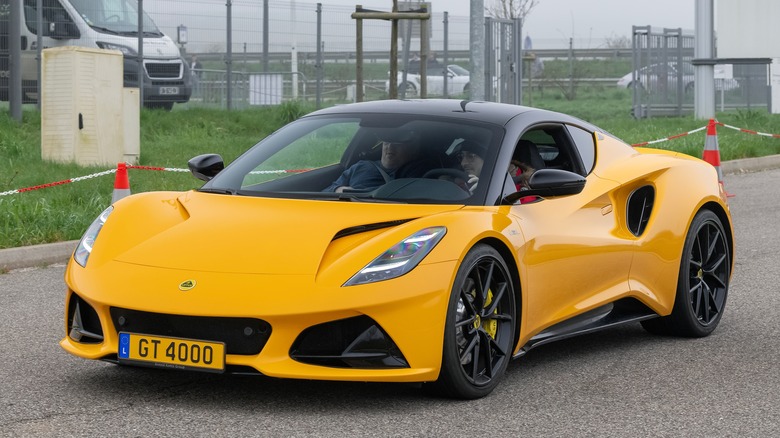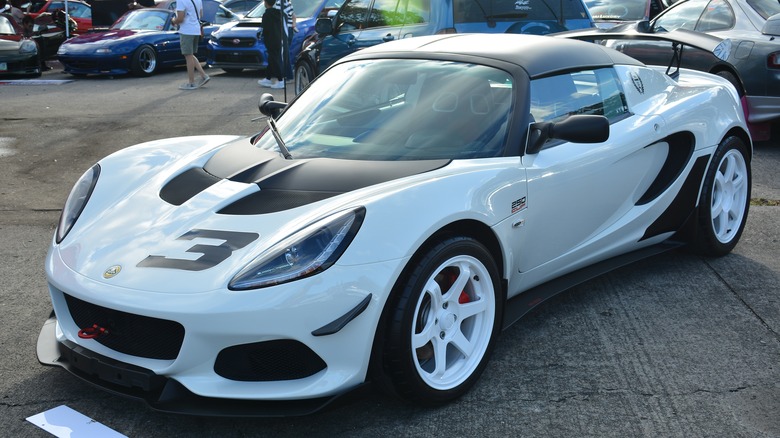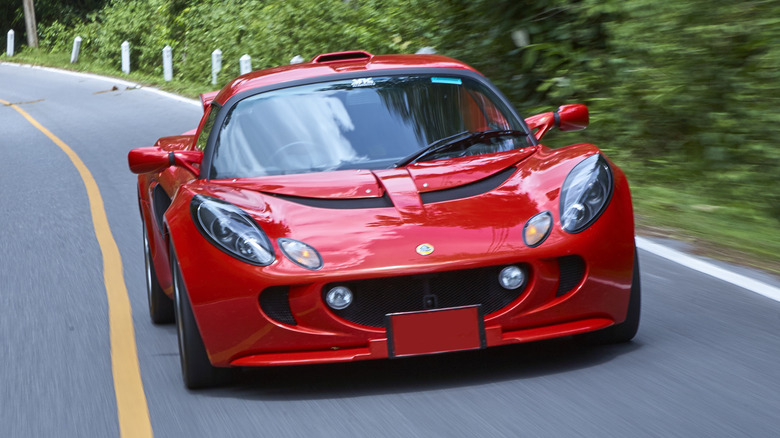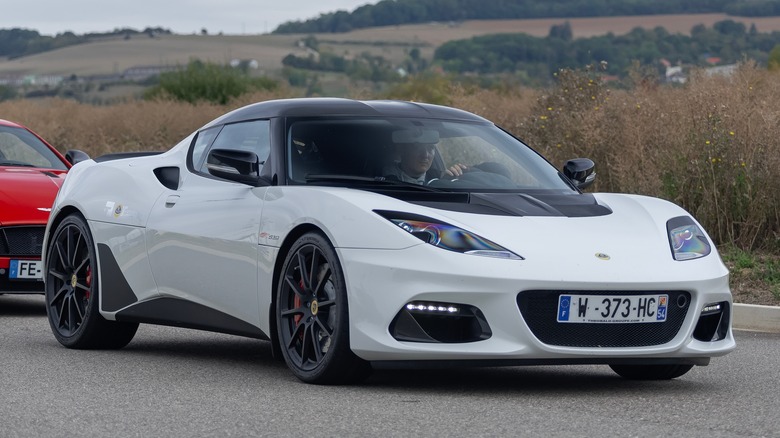Which Lotus Models Have A Toyota Engine?
Car companies often integrate engines from other manufacturers to leverage specialized expertise, cut costs, and meet stringent regulatory standards, and it usually works out for the best. One example of this is British sports carmaker Lotus, which turned to Toyota engines in the mid-2000s to harness their renowned reliability.
Prior to that, Lotus relied on Rover engines for some of its vehicles. However, seeking a more dependable and powerful option, Lotus made the strategic decision in 2004 to switch to Toyota engines. This shift proved successful for the company, as Toyota engines offered a perfect blend of performance and reliability, complementing Lotus' core principles.
The partnership between Lotus and Toyota — merging British sports car agility with Japanese engineering prowess — produced some truly exceptional vehicles over the years. From the nimble Elise, to the high-performance Emira, the use of Toyota engines has allowed Lotus to maintain its reputation of producing driver-focused cars. Here's a look at which Lotus cars have benefited from the use of Toyota engines.
Lotus Elise (Series 2 and 3)
Lotus began integrating Toyota engines with the Elise 111R, featuring Toyota's robust 1.8-litre 4-cylinder 2ZZ-GE engine. Building on the success of the Elise 111R, subsequent models continued to leverage Toyota's engineering expertise.
The Elise R, equipped with the same 1.8-liter 2ZZ-GE engine, offered comparable performance enhancements and quickly gained popularity among enthusiasts. Meanwhile, the Elise S models adopted the 1.8-liter 1ZZ-FE engine, delivering a modest 134 horsepower. This variant focused on achieving a balanced mix of efficiency and performance, appealing to a broader spectrum of driving preferences.
The Series 3 Elise models, which launched a decade after the Series 2, marked a significant milestone in the Lotus-Toyota partnership. By this stage, Lotus opted to exclusively use Toyota engines, discontinuing the Rover K-Series for good. The Elise S3, for instance, featured the efficient 1.6-liter Toyota 1ZR-FAE inline-four engine, underscoring Lotus' commitment to enhancing their models with reliable Toyota powerplants.
Lotus Exige (Series 2 And 3)
The Exige — arguably one of Lotus's best cars — also boasted Toyota engines. The second series of the Exige, introduced in 2004, featured the standard 1.8-liter 2ZZ-GE engine from Toyota. As the Exige evolved, it offered different engine options. The Exige S, introduced in 2006, was a noteworthy improvement as it came with a supercharged version of Toyota's 1.8-liter 2ZZ-GE engine.
The success of the Exige S led to further advancements, including the Exige S 240 and Exige S 260 models, both of which utilized the same Toyota engine as the Exige S but offered even greater power and performance capabilities. The evolution continued with the launch of the Series 3 Exige in 2012, which brought a new level of performance with the 3.5-liter 2GR-FE V6 engine. This supercharged V6 engine — shared with models like the Exige S V6, Exige Cup 360, and Exige Cup 430 — delivered significantly more power, ranging from 345 to 430 horsepower.
Lotus Evora and Emira
Introduced in 2009, the early Evora models featured a 3.5-liter V6 2GR-FE engine sourced from Toyota. This engine was offered in both naturally aspirated and later supercharged forms. The naturally aspirated version delivered approximately 276 horsepower, while the supercharged variants, including the Evora S and Evora 400, offered enhanced outputs ranging from 345-400 horsepower. These engines not only improved the Evora's performance, but also solidified its reputation for reliability.
The Lotus Emira, a recent addition to the Lotus lineup, continues the tradition of utilizing Toyota engines. While the base model Emira features a 2.0-liter four-cylinder engine from Mercedes-AMG, the more powerful Lotus Emira V6 is equipped with a 3.5-liter supercharged V6 engine from Toyota.
While Toyota engines have played a significant role in some of Lotus' most exciting models, Lotus is looking toward the future of electric vehicles. Lotus, as reported by Reuters, has committed to transitioning to an all-electric car manufacturer by 2028. The Emira, Lotus' latest offering, is the final internal combustion engine car from the company.



